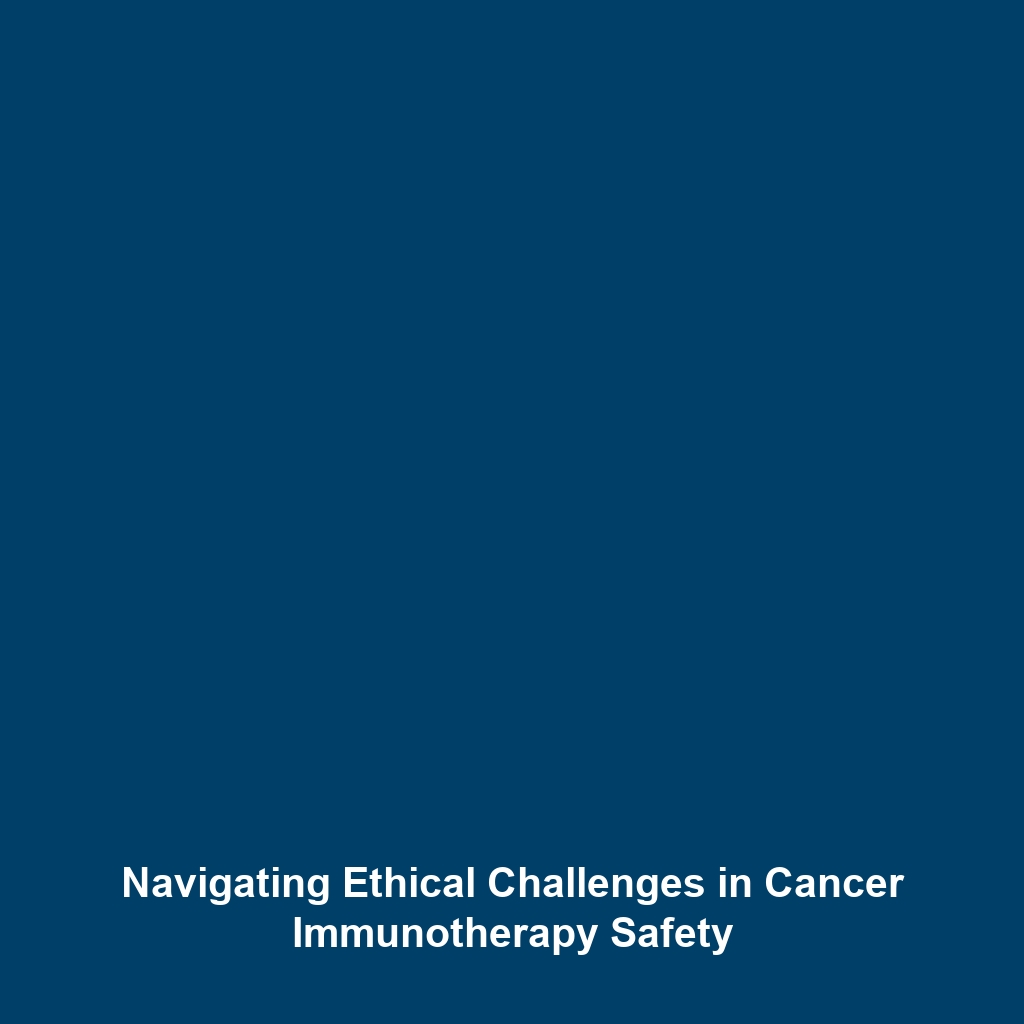Ethical Challenges in Immunotherapy: Managing the Balance Between Innovation and Safety
As immunotherapy revolutionizes cancer treatment, it brings about unique ethical challenges that require rigorous exploration. Balancing the rapid advancements in immunotherapy with the imperative of patient safety is not just crucial—the outcome could redefine the future landscape of cancer treatment. This article delves into the intricate ethical dilemmas inherent in immunotherapy, underscoring the importance of maintaining safety while fostering innovation in cancer treatment.
Key Concepts in Ethical Challenges of Immunotherapy
The field of immunotherapy, which leverages the body’s immune system to combat cancer, raises significant ethical questions. Key concepts surrounding the ethical challenges include:
- Informed Consent: Patients must fully comprehend the risks and benefits associated with innovative treatments.
- Risk-Benefit Analysis: The necessity of evaluating whether potential benefits sufficiently outweigh the risks involved.
- Access and Equity: Concerns over equitable access to novel therapies and avoiding disparities in patient care.
These ethical principles are integral as stakeholders navigate the complexities of immunotherapy & cancer.
Applications and Real-World Uses
Examining how ethical challenges in immunotherapy manifest in real-world scenarios reveals their significant impact:
- Clinical Trials: Ethical management of experimental trials involving new immunotherapeutic approaches.
- Patient Advocacy: Engaging patients in conversations about innovative treatment options while ensuring informed decision-making.
- Policy Development: Crafting guidelines that address safety and ethical considerations in the approval of new therapies.
Understanding how these elements are implemented in clinical practice illustrates the balance of risk and innovation in immunotherapy & cancer.
Current Challenges in Ethical Immunotherapy
Despite the advancements, several challenges of ethical considerations in immunotherapy persist:
- Increasing complexity in treatment protocols creates uncertainties in risk assessment.
- Limited guidelines for managing long-term side effects of new therapies.
- Disparities in access to novel treatments among different demographic groups.
- The pace of technological advancement outstrips the existing ethical frameworks.
Future Research and Innovations
Looking ahead, future research will focus on establishing more robust ethical frameworks that can adapt to the evolving nature of immunotherapy. Key areas of innovation may include:
- Integrating AI in Patient Decision-Making: Using artificial intelligence to provide personalized treatment options based on comprehensive risk assessments.
- Enhancing Regulatory Frameworks: Developing updated regulatory guidelines to better address the swift changes in technology and practices.
- Fostering Collaboration: Encouraging interdisciplinary collaboration as a way to enhance the ethical review process in clinical settings.
Such innovations will streamline the balance between safety and innovation in immunotherapy.
Conclusion
In summary, addressing the ethical challenges in immunotherapy is essential for fostering innovation while ensuring patient safety in cancer treatments. As this field continues to advance, a sustainable approach must prioritize ethical considerations alongside groundbreaking discoveries. For more insights, explore our resources on the latest advancements in immunotherapy & cancer and stay informed about the innovations shaping the future of cancer treatment.

